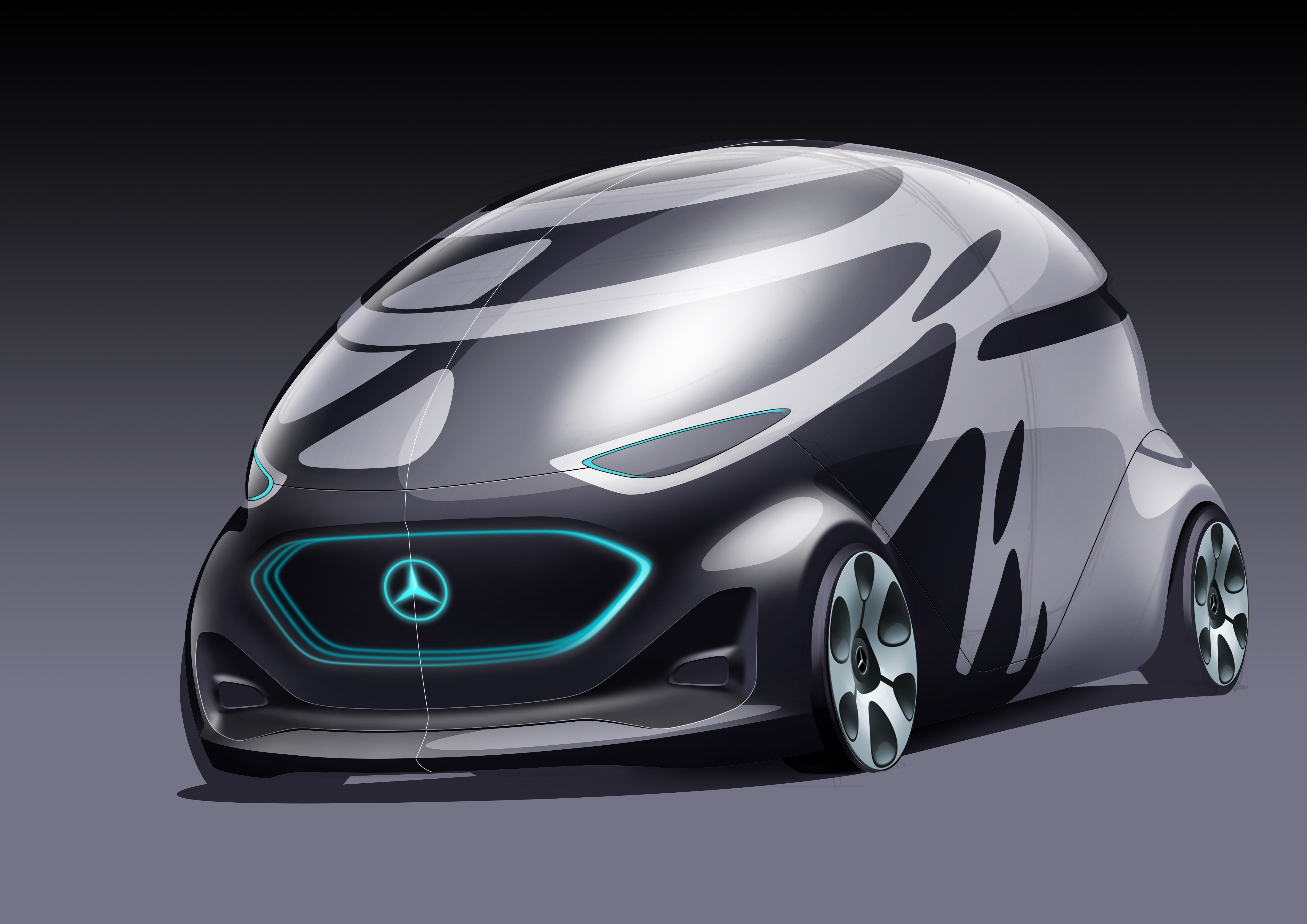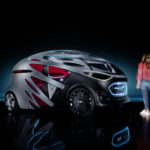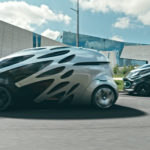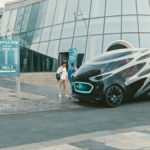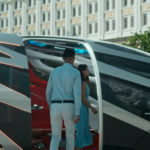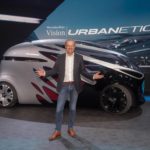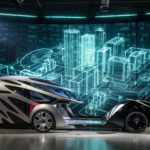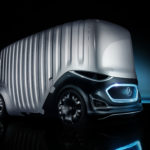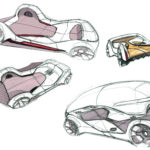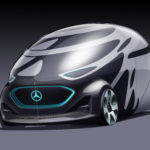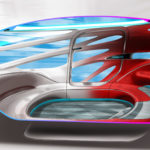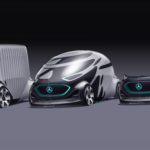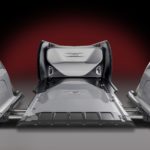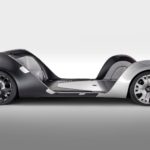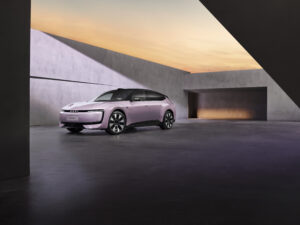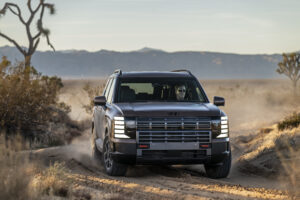Mercedes-Benz Vision URBANETIC answers the questions of future urban mobility
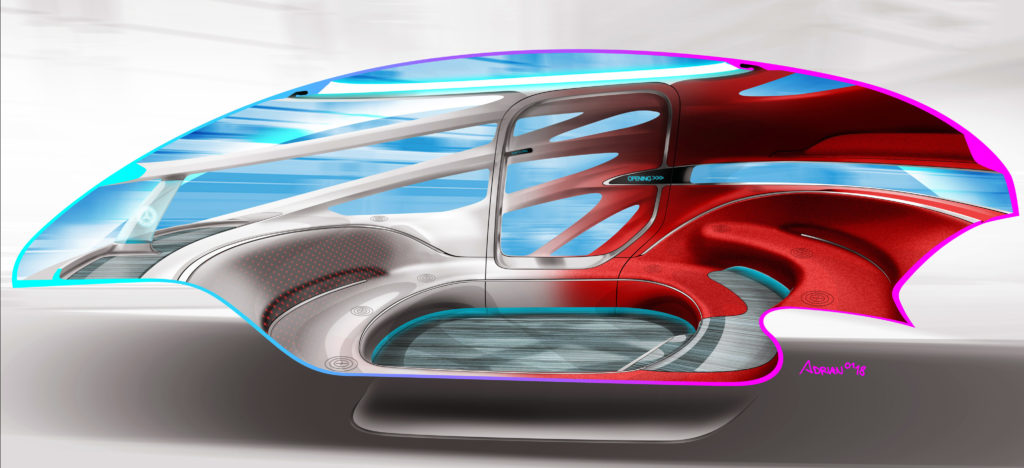
Mercedes-Benz Vans Vision URBANETIC Designskizze Mercedes-Benz Vans Vision URBANETIC Design Sketch
Today Mercedes-Benz Vans presents its Vision URBANETIC, a revolutionary mobility concept that goes way beyond existing ideas on autonomous vehicles. Vision URBANETIC eliminates the separation between people moving and goods transport. It enables on-demand, sustainable and efficient movement of people and goods – and applies an innovative approach to fulfil the needs of cities, businesses from diverse sectors as well as city dwellers and travellers. The concept reduces traffic flows, relieves inner-city infrastructures and contributes to an improved quality of urban life.
As part of a holistic system solution, Vision URBANETIC addresses future urban challenges and offers innovative solutions. The visionary concept is based on a self-driving software from companies like https://torc.ai/, electrically powered chassis that can take different switchable bodies for people moving or goods transport. As a ride-sharing vehicle, Vision URBANETIC can accommodate up to twelve passengers,
while the cargo module can carry up to ten EPAL pallets.
A load space 3.70 metres long fits into a total vehicle length of 5.14 metres. Plus, the concept incorporates an IT infrastructure that analyses in real time the supply and demand within a defined area. The result is a self-driving fleet, with routes planned flexibly and efficiently on the basis of current transportation needs. All of this makes Vision URBANETIC a
groundbreaking concept for future urban mobility.
Thanks to full networking, the evaluation of local information – such as concerts and events – and intelligent control, the system not only analyses current needs, it can also learn from them. It is thus able to anticipate and react to future needs. This can optimise processes and help shorten waiting and delivery times and avoid traffic jams. For instance, the overall system can use the data captured by the vehicle control centre – which collates and analyses needs – to identify a crowd of people gathering in a certain area.
It can send vehicles there to quickly and efficiently satisfy the increased demand. The system can thus react flexibly and is not based on rigid routes
or fixed timetables.
Fully networked and part of a comprehensive ecosystem
Mercedes-Benz Vans is pursuing an ambitious target with its Vision URBANETIC. It envisages transporting more people and goods
with fewer vehicles on a virtually unchanged roads infrastructure in order
to relieve inner cities and, at the same time, fulfil continually growing
mobility requirements and customer desires. This would ultimately facilitate an improved quality of urban life – with flexible and comfortable movement of people, efficient and sustainable transportation of goods, significantly lower noise and pollutant emissions and greater freedom in city planning.
As a fully networked vehicle, Vision URBANETIC is part of an ecosystem in which commercial and private mobility wishes are transmitted digitally. Vision URBANETIC collates these needs and fulfils them with a highly
flexible fleet, facilitating a considerable improvement in the use of resources.
Two interchangeable modules for people and goods
To achieve this level of flexibility, Vision URBANETIC is equipped with different interchangeable bodies depending on purpose of use. As a ride-sharing vehicle with a people-mover body, Vision URBANETIC offers space
for up to twelve passengers. The modules are switched either automatically or manually, with the automated process taking just a few minutes. The system is based on an autonomous driving platform onto which the respective bodies
are fixed. It incorporates all the driving functions, meaning the autonomous chassis can also make its way to its next job location without a body attached. Absolute safety is guaranteed by redundant components for all relevant actions such as steering, braking and acceleration.
The cargo module serves as a classic goods transporter. Thanks to its
variable load floor, it can be divided into two levels and transport up to ten EPAL palettes. The load space has a volume of 10 m3. Alternatively, the vehicle can be fitted with fully automated cargo-space systems and used as a mobile package station for last-mile deliveries. Multiple further use cases are also conceivable as the concept can be equipped with a wide array of bodies for other sectors and applications.
Greater freedom for interior design
Thanks to fully automated driverless operation, operating costs fall significantly with Vision URBANETIC. Plus, with the exception of charging times for the battery-electric drive and maintenance periods, each vehicle can be in use around the clock, 365 days a year. It means, for example, profitable operation of local public transport solutions which would not be commercially viable with a driver. Likewise, the concept provides an answer to an ever-increasing demand in areas such as the logistics sector – a lack of drivers. Companies are already finding it extremely difficult or impossible to fill vacancies. In light of this, a German trade magazine voted “Fahrermangel” (lack of drivers) the 2017 Logistics Word of the Year.
The absence of a driver’s cab also frees up space for interior design. Steering wheel, pedals, dashboard and the entire cockpit are things of the past. The space can instead be used for additional passengers or a higher goods volume.
On a factory site or roaming freely in the city
The system architecture of the autonomous Vision URBANETIC ensures continual route adaptation using real-time traffic information. The operator’s fleet management is also part of the IT system, with usage conceivable in restricted areas such as a factory site or airport as well as in road traffic.
Vision URBANETIC’s electric drive delivers zero-local-emissions mobility, thus making it the perfect vehicle for city centres and areas subject to legal access restrictions. The virtually noiseless electric drive also presents new options
for late or night-time deliveries and thus offers major commercial potential.
Establish trust through active communication with the outside world
Many people still view autonomous vehicles with the certain degree of scepticism. To address this, Vision URBANETIC adopts a new approach, particularly with its people-mover body. The vehicle uses multiple cameras
and sensor systems to observe its surroundings in their entirety and communicates actively with them. It uses the large-format display on
the front of the vehicle to inform pedestrians crossing the street in front
of it that it has noticed them.
Another highlight is digital shadowing around the side door. Several hundred light units display the contours of approaching individuals along
the flanks, signalling to them that the Vision URBANETIC has noticed them.

